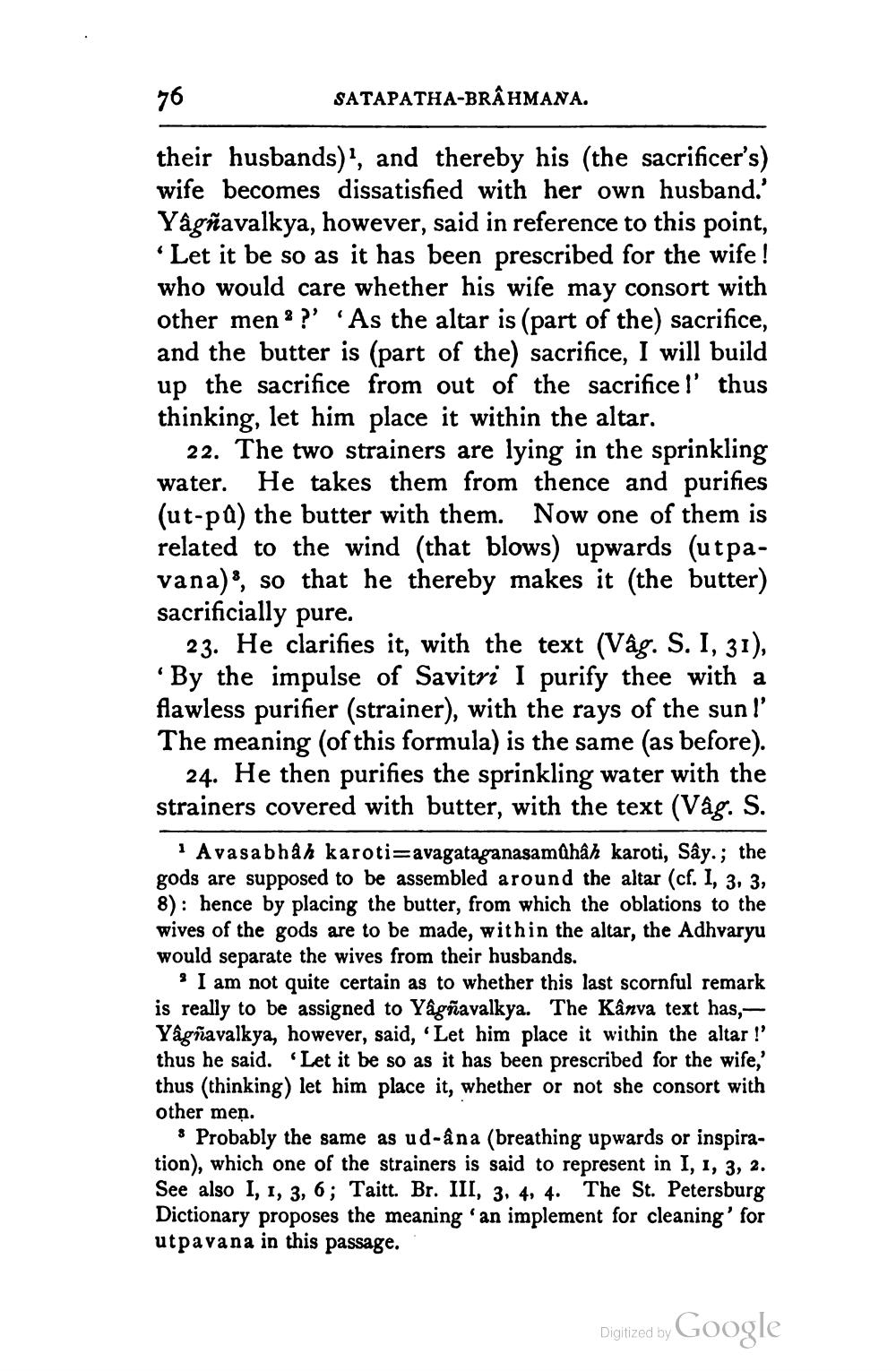________________
SATAPATHA-BRAHMANA.
their husbands)', and thereby his (the sacrificer's) wife becomes dissatisfied with her own husband.' Yâgñavalkya, however, said in reference to this point, • Let it be so as it has been prescribed for the wife ! who would care whether his wife may consort with other men ?' 'As the altar is (part of the) sacrifice, and the butter is (part of the) sacrifice, I will build up the sacrifice from out of the sacrifice l' thus thinking, let him place it within the altar.
22. The two strainers are lying in the sprinkling water. He takes them from thence and purifies (ut-pa) the butter with them. Now one of them is related to the wind (that blows) upwards (utpavana)?, so that he thereby makes it (the butter) sacrificially pure.
23. He clarifies it, with the text (Vág. S. I, 31), * By the impulse of Savitri I purify thee with a flawless purifier (strainer), with the rays of the sun!' The meaning (of this formula) is the same (as before).
24. He then purifies the sprinkling water with the strainers covered with butter, with the text (Våg. S.
1 Avasabhah karoti=avagataganasamahâh karoti, Sây.; the gods are supposed to be assembled around the altar (cf. I, 3, 3, 8): hence by placing the butter, from which the oblations to the wives of the gods are to be made, within the altar, the Adhvaryu would separate the wives from their husbands.
* I am not quite certain as to whether this last scornful remark is really to be assigned to Yågñavalkya. The Kânva text has,Yågñavalkya, however, said, 'Let him place it within the altar!' thus he said. Let it be so as it has been prescribed for the wife,' thus (thinking) let him place it, whether or not she consort with other men.
* Probably the same as ud-âna (breathing upwards or inspiration), which one of the strainers is said to represent in I, 1, 3, 2. See also I, 1, 3, 6; Taitt. Br. III, 3, 4, 4. The St. Petersburg Dictionary proposes the meaning an implement for cleaning' for utpavana in this passage.
Digitized by Google




